Maggie O’Haire, Ph.D.
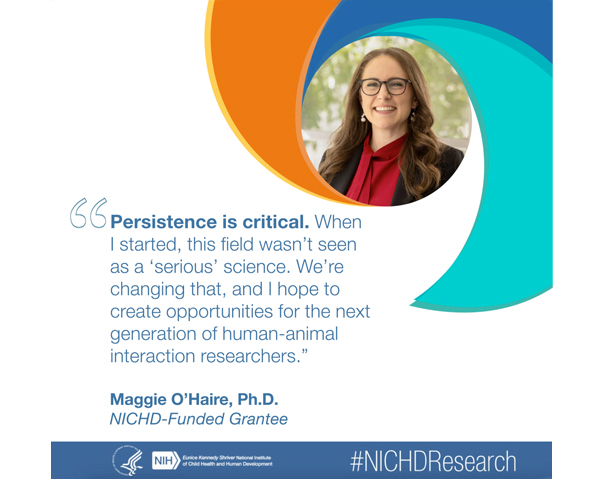
Dr. Maggie O’Haire, at the University of Arizona College of Veterinary Medicine, focuses on the ways that animals such as service dogs affect human mental health and wellness. She is one of the country’s leading researchers in human-animal interaction.
Sharon Dekel, Ph.D.
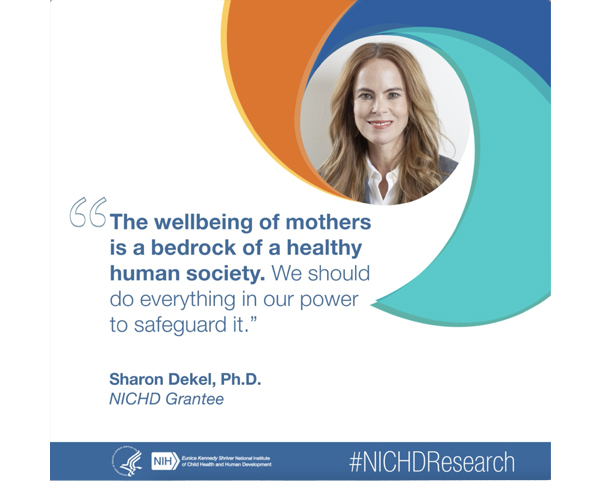
Dr. Sharon Dekel, at Harvard Medical School and Massachusetts General Hospital, studies the biological and psychological factors that affect how mothers react to the stresses of childbirth. Her research focuses on the impact of the birth experience of maternal mental health with an emphasis on traumatic experiences. The multidisciplinary research model she developed has helped her team study more than 8,000 postpartum women.
Cori Cahoon, Ph.D.
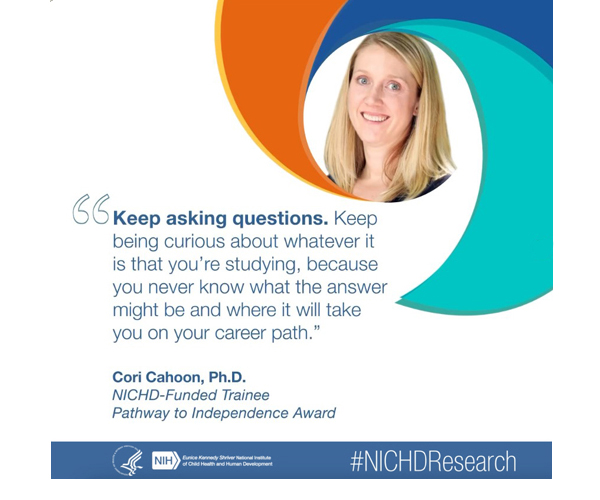
As the daughter of a nurse and a veterinarian, Dr. Cori Cahoon, at the University of Oregon, knew that a career in health or medicine was in her future. That childhood inspiration ultimately led her to research that focuses on the genetics of and environmental influences on sperm and egg development.
Fern R. Hauck, M.D., M.S.
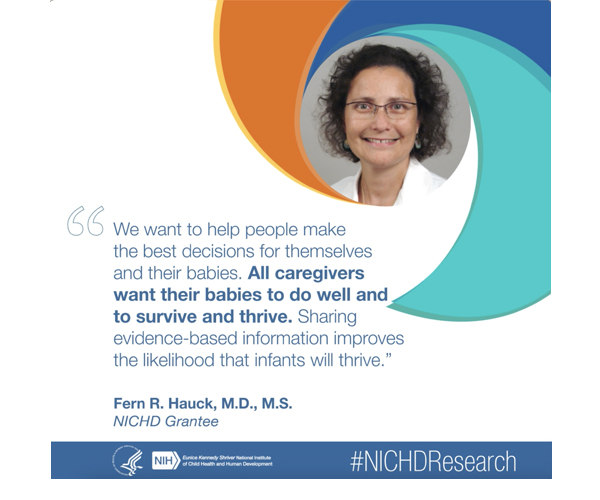
Dr. Fern Hauck, at the University of Virginia School of Medicine, focuses her research on safe sleep interventions to reduce the risk of Sudden Infant Death Syndrome and other sleep-related infant deaths.
Pinhas Ben-Tzvi, Ph.D., P.E.
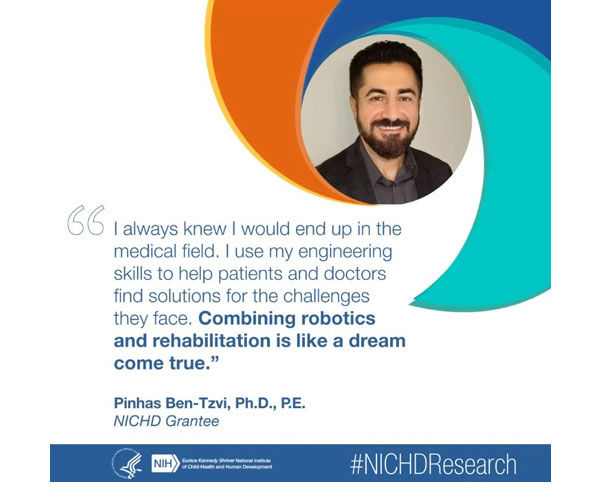
Dr. Pinhas Ben-Tzvi, at Virginia Polytechnic Institute and State University, uses his background in mechanical, electrical, and computer engineering and NICHD funding to develop rehabilitation technology for people with brachial plexus injury.
Learn more about Dr. Ben-Tzvi.
Rachel Moon, M.D., FAAP
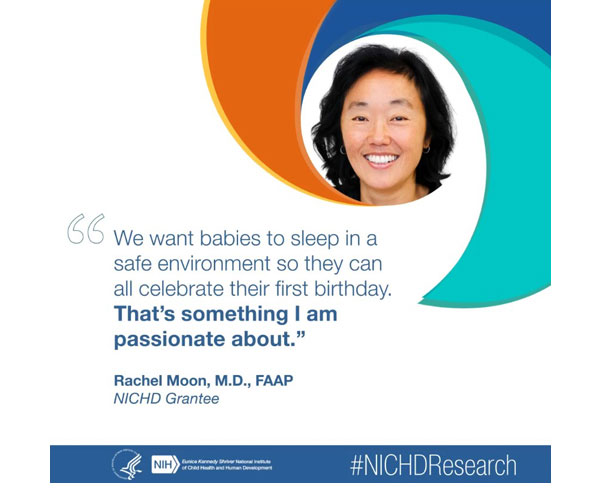
Dr. Rachel Moon, a pediatrician and Harrison Distinguished Professor at the University of Virginia, receives NICHD support for her studies on ways to reduce sleep-related infant deaths.
Alexa Freedman, Ph.D.
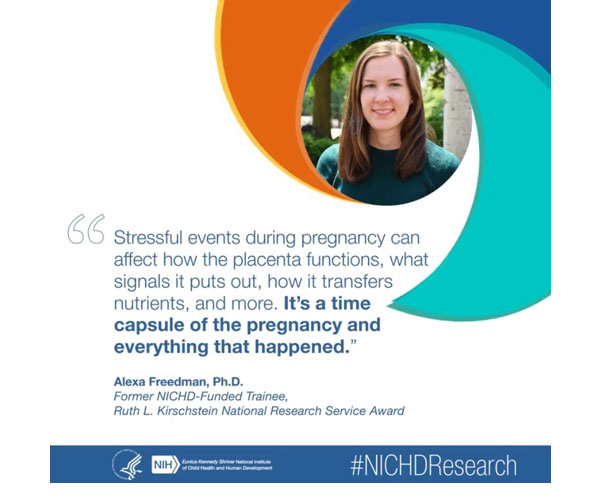
Dr. Alexa Freedman, a Ruth L. Kirschstein National Research Service Award recipient at NorthShore University HealthSystem Hospital, studies maternal stress, placental inflammation, and pregnancy outcomes with support from NICHD.
Learn more about Dr. Freedman.
Amar Dhand, M.D., D.Phil.
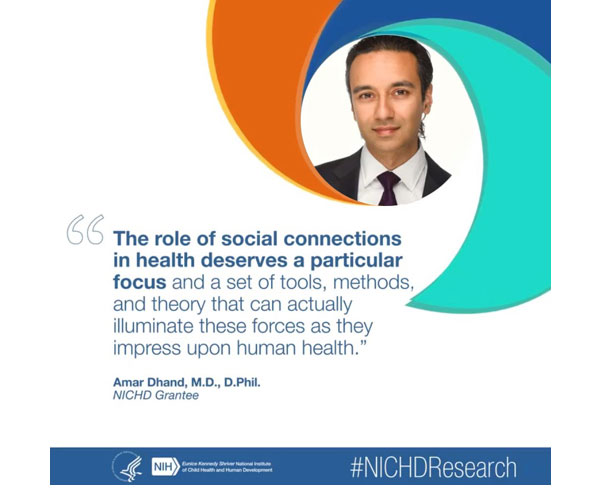
Dr. Amar Dhand, at Brigham and Women’s Hospital and Harvard Medical School, received NICHD support for his postgraduate training through to his current independent research on how social interactions help people recover after a stroke.
Myron Evans II, Ph.D.
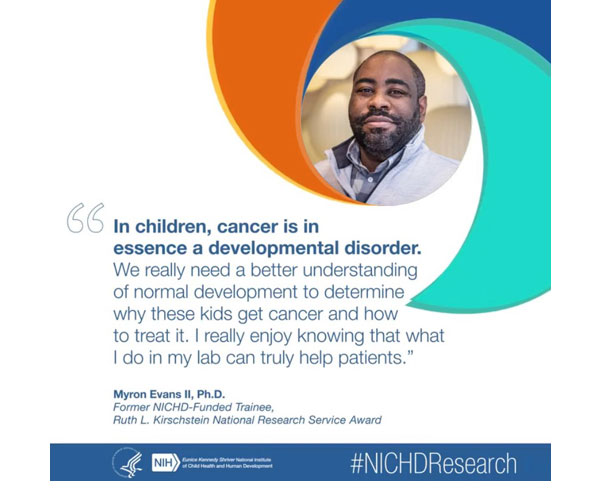
Dr. Myron Evans, a Ruth L. Kirschstein National Research Service Award recipient at the University of Washington and Seattle Children’s Hospital, studies how the brain typically develops to better understand pediatric brain cancer.
Matthew MacDougall, M.D., Ph.D.
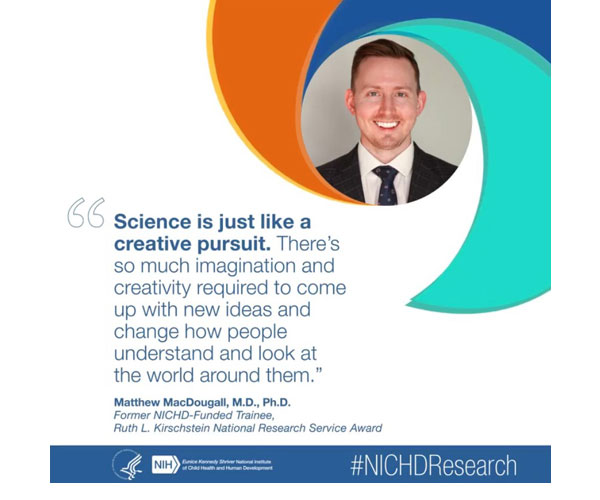
Dr. Matthew MacDougall, a Ruth L. Kirschstein National Research Service Award recipient at Stanford University, received NICHD support for his Ph.D. work while he was at the University of Illinois, Chicago.
Learn more about Dr. MacDougall.
Back to NICHD Research Profiles.
 BACK TO TOP
BACK TO TOP